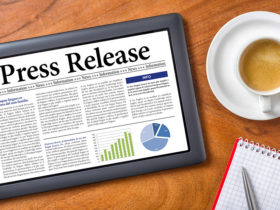What does the future hold? This is a question that has intrigued and fascinated mankind throughout history. Few of us, however, if given a chance to read the future like an open book, would really want to. A zest for the unexpected is part of being human. Nevertheless, most of us would like some guidelines for what’s coming up.
In past and present cultures all over the world human beings have studied astrology, connecting the positions of the sun, moon, planets, and stars with conditions here on earth. It was observed that nature and human life followed definite cycles and that these were reflected in the predictable cycles of the heavenly bodies. For example, we predict the seasons by forecasting the regular yearly changes in the axis of the earth with respect to the sun. We also predict the tides by the positions of the sun and moon relative to the earth. Going beyond these obvious interrelationships, astrology has, through the ages, collected an organized body of knowledge that makes it possible to make other predictions about natural phenomena and human behavior.
However, future events are not predetermined and irrevocable. Just as the "science" of economics, for example, works with probabilities and trends, so astrology tries to delineate areas of probability and possibility. It is somewhat like weather predicting. When the local weather1 forecaster predicts a ninety percent chance of rain and it doesn’t rain, he can always say, "Well, that’s the ten percent chance for you." To come to the weatherman’s defense, if it doesn’t rain, then obviously some unforeseen factor must have intervened at the last moment to keep what must have seemed like a virtual certainty from happening. In the case of an astrological forewarning, it seems that an act of will power, or sometimes simple caution, can often prevent something untoward from happening or can tip the balance in our favor.
The basic importance of the positions of heavenly bodies at any given time in respect to the earth is that they indicate the present relationship among various energies, similar to the way a musical score indicates the wavelength relationship of the various notes being played. To use another comparison, the positions of the sun, moon, and planets at any given time may indicate current conditions surrounding us, just as taking a blood sample determines the current condition of the body as a whole. For convenience, however, we speak of "the effects of planets" or "the effects of a zodiac sign" in the same way that we say "the sun rises," although we know that it is really the earth turning to meet the sun.
Astrological predicting can cover a wide range of phenomena. Sometimes if the astrological conditions are very clear-cut, actual "events" can be predicted, both on a personal level and on a world scale. However, the more usual case is where possibilities and atmospheres are what can be anticipated.
We must also recognize what events are really important. Many things that seemed relatively insignificant at the time are seen eventually (usually much later, in retrospect) to be turning points in people’s lives or in world history.
Modern science in earlier stages of development, with its initial enthusiasm for absolute proof, seemed to rule out the possibility of connections between cosmic phenomena and human activity. However, science today, with its broader perspectives, is reinvestigating what are emerging as definite connections between heavenly bodies and conditions here on earth.
Are certain events inevitable?
Winter is inevitable in the north when the sun takes its yearly journey south. The outside temperature and the weather conditions seem beyond our control. But we do have some control over how we prepare for the winter, how cold our houses and our bodies are, and our attitude toward the weather.
It’s exactly the same when you predict what’s going to happen in other ways by using the positions of the sun, moon, and planets! Certain general conditions are inevitable, but we can make preparations for our proper use and often enjoyment of these general conditions. In other words, knowing about coming conditions can help you put them to positive use. You can learn to distinguish between the "inevitable" astrological conditions (like winter) and the "controllable" astrological conditions (like your preparation for and response to winter). Guidelines for the future give us more freedom rather than less. If we had no idea when to expect the seasons, we would not know when to plant our gardens and when to prepare for the cold. Knowing the future weather can help us plan picnics for sunny days and closet cleanings for rainy days.
For each type of planetary influence you will find suggested best uses and cautions. The better you understand what to expect, the better you can create your own preferred response to the condition.










